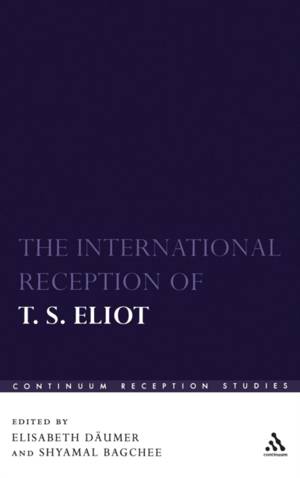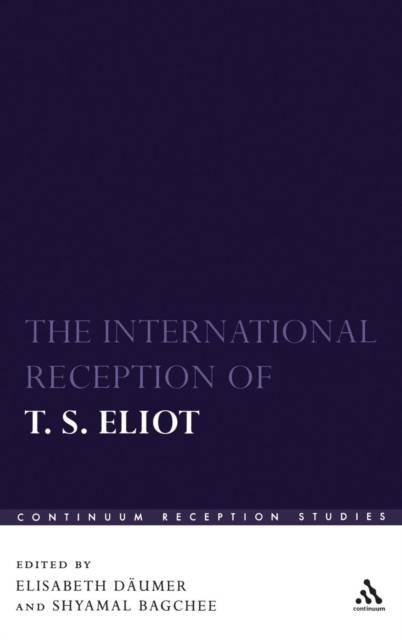
- Afhalen na 1 uur in een winkel met voorraad
- Gratis thuislevering in België vanaf € 30
- Ruim aanbod met 7 miljoen producten
- Afhalen na 1 uur in een winkel met voorraad
- Gratis thuislevering in België vanaf € 30
- Ruim aanbod met 7 miljoen producten
Zoeken
The International Reception of T. S. Eliot
€ 415,95
+ 831 punten
Omschrijving
The International Reception of T. S. Eliot brings together a wide range of international perspectives on this influential twentieth-century author, who as poet, critic, and editor did much to shape modernist poetics, not only in Europe and North America, but also world-wide. Foregrounding distinct aspects of Eliot's international reception, individual chapters of the book illuminate such topics as Eliot's complex impact on the development of modernist poetics in the post-colonial Caribbean, the emergent state of Israel, and colonial India; the insurgent potential of translated Eliot in Soviet-occupied Romania and post-war Germany; the different ways in which Eliot's work has entered the cultural life of national and emergent national contexts like Iceland, Italy, Spain, China, and Japan; the relationships forged with Eliot's poetry and criticism by such authors as Jorge Borges, Czeslaw Milosz, A.J.M. Smith, and E.R. Curtius; the unique reverberations of Eliot's work in the bi-cultural lives of contemporary scholars; and the challenges of teaching Eliot across boundaries of culture and religion. Importantly broadening the purview of Anglo-American Eliot Studies, the book should prove essential reading for scholars around the world interested in Eliot and modernism, as well as post-colonial theory and modernist translation theory.
Specificaties
Betrokkenen
- Uitgeverij:
Inhoud
- Aantal bladzijden:
- 320
- Taal:
- Engels
- Reeks:
Eigenschappen
- Productcode (EAN):
- 9780826490148
- Verschijningsdatum:
- 28/08/2007
- Uitvoering:
- Hardcover
- Formaat:
- Ongenaaid / garenloos gebonden
- Afmetingen:
- 182 mm x 239 mm
- Gewicht:
- 870 g

Alleen bij Standaard Boekhandel
+ 831 punten op je klantenkaart van Standaard Boekhandel
Beoordelingen
We publiceren alleen reviews die voldoen aan de voorwaarden voor reviews. Bekijk onze voorwaarden voor reviews.






